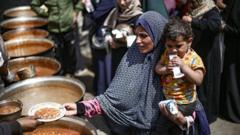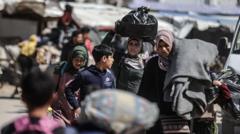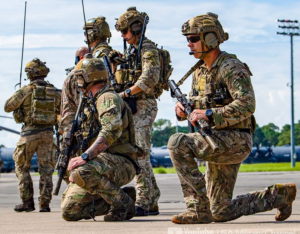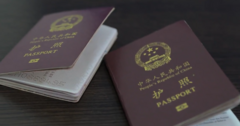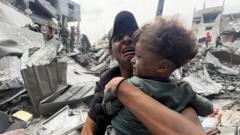As Israel intensifies its military operations in Gaza, Defence Minister Israel Katz declared Rafah a new security zone. Amid severe humanitarian crises, the UN reports significant civilian displacement and urgent needs for aid, with calls for compliance with international law.
Israel Expands 'Security Zones' to Rafah Amid Ongoing Conflict
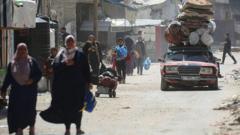
Israel Expands 'Security Zones' to Rafah Amid Ongoing Conflict
The Israeli Defence Minister announces the inclusion of Rafah in Gaza's security zones, displacing thousands and expanding military operations.
Israel's Defence Minister Israel Katz has recently announced the expansion of the Israeli military's so-called "security zones" in the Gaza Strip to encompass the southern city of Rafah. This declaration was made during a visit to the area as part of Israel's broader military strategy to isolate Hamas by reducing Gaza's territory. Katz emphasized that the military aims to apply pressure on Hamas to secure the release of hostages still held by the organization.
The move follows a significant increase in military activity since Israel resumed its operations against Hamas on March 18 after a protracted ceasefire. The eviction order issued by the Israeli Defense Forces (IDF) led to the mass displacement of civilians, with the UN reporting that over 390,000 Palestinians—nearly one-fifth of Gaza's population—have been forced to flee, leaving them with few safe havens.
Israel's military strategy appears to involve designating nearly two-thirds of Gaza as "no-go" zones while restricting humanitarian access severely. Following the military escalation, Rafah, which previously housed around 280,000 residents, has become nearly deserted due to evacuation demands and ongoing conflicts. The IDF's aggressive advances include a vital strip of land along the Egypt-Gaza border, called the "Philadelphi Corridor," intended to prevent weapon smuggling and bolster military control over the area.
The UN has indicated that the recent evacuation orders, which have swept across almost 97% of Rafah, have spiraled into a humanitarian crisis, with allegations that Israel's blockade and operational strategies violate international law obligations to protect civilians. Meanwhile, the humanitarian situation worsens as vital supplies have been cut, leaving many without food, medicine, or fuel.
Reports suggest a tactical shift where Israeli forces aim to push Palestinian civilians towards the coastal regions to streamline military operations against Hamas urban networks. However, this approach raises substantial concerns regarding the care of displaced individuals and their rights under international humanitarian law.
In recent confrontations, the Israeli military claimed to have neutralized Hamas leaders and infrastructure in a notable strike that reportedly resulted in high civilian casualties, including numerous children. This exacerbates the already dire scenario where upwards of 50,880 people have met their demise in the ongoing conflict since the ambush by Hamas forces on October 7, 2023.
As the conflict continues unabated, international observers and humanitarian organizations are urging for a reassessment of military actions, advocating for the protection of civilians and adherence to international norms, while the situation in Gaza remains precarious and increasingly volatile.


